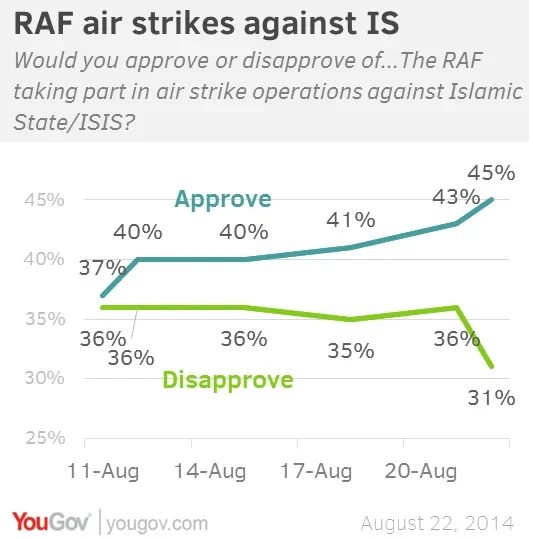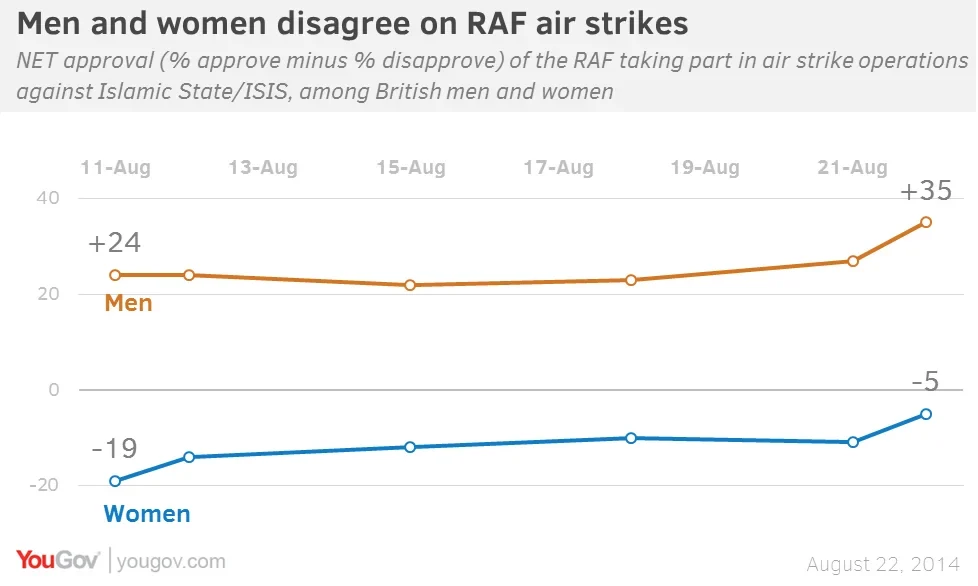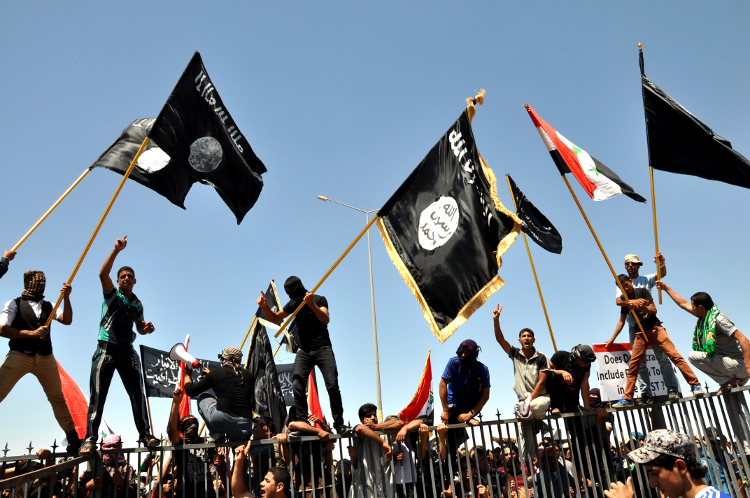Support for RAF strikes is steadily increasing, but there is a dramatic difference in opinion between men and women
As Peter Kellner described in his analysis earlier this week, the British public appears to have responded very differently to the advance of the deadly terror group Islamic State in Iraq than it did to the use of chemical weapons in Syria last year. Missile strikes in Syria were widely opposed, leading to David Cameron’s historic defeat in a Commons vote to approve military action. By contrast, approval of strikes against IS has increased as events have unfolded.
The latest YouGov polling on the situation in Iraq, conducted for the Sunday Times, finds approval of RAF air strikes in Iraq has grown to 45%, the highest level yet. While the increase is not significantly higher than the 43% approval in the previous survey, it follows the pattern found over the past week of increasing approval. The latest survey is the second to be conducted since the killing of US journalist James Foley, whose death was captured on an IS video and whose killer appears to have come from London.

However, another interesting trend has emerged from the start: men are consistently and significantly more likely to support air strikes than women are.
In the most recent survey, six in ten men say they would approve of RAF air strikes while only 25% would disapprove of them. For women the numbers are 31% approve to 36% disapprove. Taken as a measure of net approval (approve minus disapprove), there is a 40-point gap between men (+35) and women (-5) in the latest survey. While approval has increased steadily in both groups the gender gap (45 points on August 10-11) has hardly changed.

While there is usually some difference between the views of men and women on policy issues, such a dramatic contrast is rare.
Part of the difference is accounted for by the fact that – as is often the case, particularly with foreign policy matters – women are more prepared than their male counterparts to say they don’t have an opinion. Around 30% of women respond “Don’t know” when asked about RAF air strikes, about double the number found for men. But this doesn’t entirely explain why the shape of opinion is so different among women: since the first poll, those British men who do have an opinion have tended to approve of air strikes, while women who have an opinion tended to oppose them.
This contrasts with male and female opinions on humanitarian air drops by the RAF; men are somewhat more positive but both genders overwhelmingly approve of them. It also contrasts with opinions on granting asylum to Iraqi Christian refugees, which men and women both narrowly disapprove of. The gap re-appears when respondents are asked about other forms of direct military involvement, like supplying arms to Iraqi and Kurdish forces, which men back by 49% approve to 33% disapprove and women oppose by 44% disapprove to 25% approve. Similarly, men are much more approving of the US air strikes already underway.
Beyond Iraq
Looking again to opinions about military action against the Syrian government last summer, there is a similar effect, but it is much less pronounced. On August 27-28, before the Commons vote, men opposed missile strikes by 53% to 30% in favour, while women opposed them by 49% to 15%.
YouGov has found larger differences on other military issues, however. Asked in late July whether the UK should maintain its committment to us military force to defend NATO allies from attack, men were much more likely to say yes. Men are also also much more likely to say the UK should use military force to defend individual allies like the United States, France and Poland in the event of a theoretical attack by Russia.
PA ImageUpdate: the headline has been edited for clarity.









